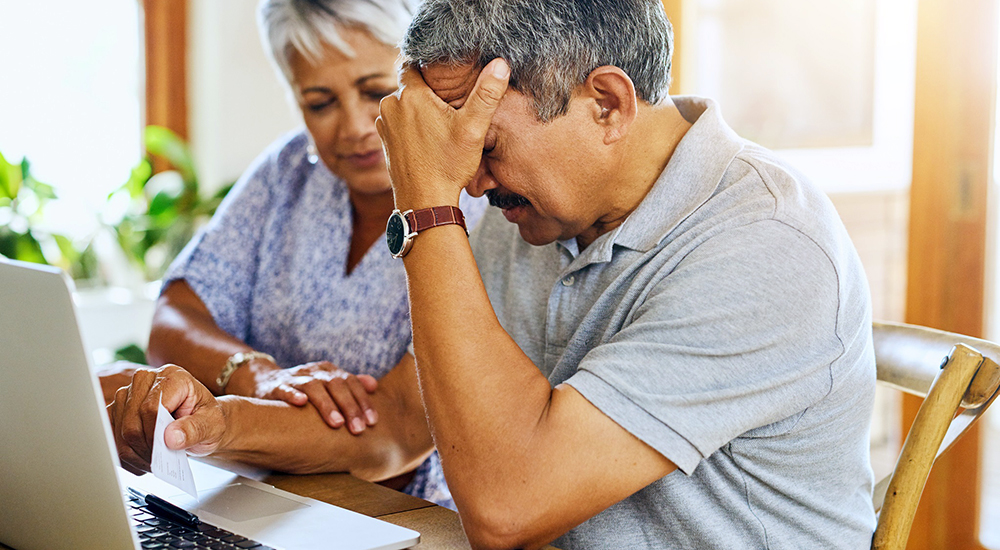Now that the COVID-19 vaccine is becoming available, scammers are calling, texting and emailing Veterans with promises of vaccine availability and early access to vaccines.
These promises are lies. The people sending these messages are identity thieves. They are after your sensitive personal information, such as your Social Security Number, and your money.
How can you know if the message you receive about a vaccine is a real VA message or a scam? Here are some tips on how to how to avoid scams and how to tell the difference.
Here’s how VA will contact you
VA is beginning contact with Veterans to offer and administer COVID-19 vaccinations. You can sign up for vaccine updates by visiting https://www.va.gov/health-care/covid-19-vaccine/stay-informed. This is a valid and reliable source of information about VA’s COVID-19 vaccine response.
Plus, individual VA medical facilities will soon start contacting Veterans about the vaccine. Outreach will most likely come through the VA.gov website, VEText, MyHealtheVet or VA emails. VA may also reach out to you via the US Postal Service through letters and postcards. Or you may get a phone call.
What VA will never do
No matter how we contact you, VA will never request money or your full Social Security Number through phone, email, or text message.
VA will never ask for your full Social Security Number or personal health information through a vaccination request call.
VA will never include hyperlinks in texts or emails that will take you to unofficial or non-secured web pages that ask you to provide personal information. Non-secured sites look like this: “http://.” Secured sites look like this: “https://.”
VA will never require payment in exchange for providing the vaccine early and will not require payment to become eligible for the vaccine.
The information you provide is up to you
If you do receive a phone call from a VA medical center, you may be asked to provide the last four digits of your Social Security Number or your date of birth. It is up to you if you choose to provide that information.
To be safe, we recommend that you politely hang up and then call the medical center back so that you can be sure you are actually speaking with a real Veteran health provider. Use the number you have saved in your contacts or search for the facility contact information on their website.
Don’t just click that link
If you receive an email or text that directs you to click a hyperlink to a website, don’t. You have no way of knowing if it’s actually the website it’s supposed to be. Instead, open your browser, type in the address of the site and visit it directly.
Scams to look out for
COVID-19 vaccine scams come in many forms: emails, website traps, texts and phone calls. Here are the top vaccine scams the FBI warns about:
- Payment to be added to a vaccine waitlist.
- Ads, websites, texts, phone calls and emails offering early access to the vaccine for a fee.
- Emails or phone calls from people claiming to work at a medical center or insurance company offering the vaccine but requiring personal medical details to check eligibility.
- Messages, calls or emails claiming that the government is requiring you to get the vaccine.
- Ads on social media for the vaccine.
Avoid all these types of outreach and do not engage with the scammer at all.
Learn More
To learn more about how to protect yourself from vaccine scams:
- Tips from the Federal Communications Commission (FCC) on how to avoid COVID-19 scams: https://www.fcc.gov/covid-scams.
- General FCC tips on how to avoid giving personal information to scammers over the phone: https://www.fcc.gov/consumers/guides/spoofing-and-caller-id.
- Better Business Bureau information on what to expect from scammers and how to spot a coronavirus vaccine con: https://www.bbb.org/article/scams/23475-bbb-scam-alert-a-covid-vaccine-is-on-the-way-so-are-the-scams.
- Tips from the U.S. Food and Drug Administration on avoiding COVID-19 vaccine scams:
- Tips from the U.S. Centers for Disease Control on avoiding COVID-19 vaccine scams: https://blogs.cdc.gov/publichealthmatters/2020/06/beware-scams/.
Steve Tokar is a writer-editor for the VHA Office of Digital Media.
Topics in this story
More Stories
The Medical Foster Home program offers Veterans an alternative to nursing homes.
Watch the Under Secretary for Health and a panel of experts discuss VA Health Connect tele-emergency care.
The 2024 National Veteran Suicide Prevention Annual Report provides the foundation for VA’s suicide prevention programs and initiatives.







I made an inquiry to my VA healthcare team about being vaccinated for COVID-19. The reply I received was contact my local public health department . Unfortunately I live in the one county in all of Pennsylvania that has no public health department.
What does that matter anyway I’m a Veteran !
When exactly will you know that you need a COV-19 shot.
I am a 66 yr. Old retired veteran and I went to my VA for the lab and I inquired if I could get Covid vaccine and I had to be 70 yrs. old.
I explained that I had a multitude of medical problems and they said I was not old enough ?
When can I expect to get the covid 19 vaccine, I am 65 with and have COPD ?